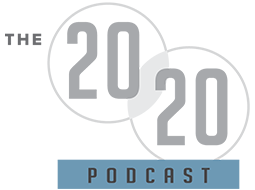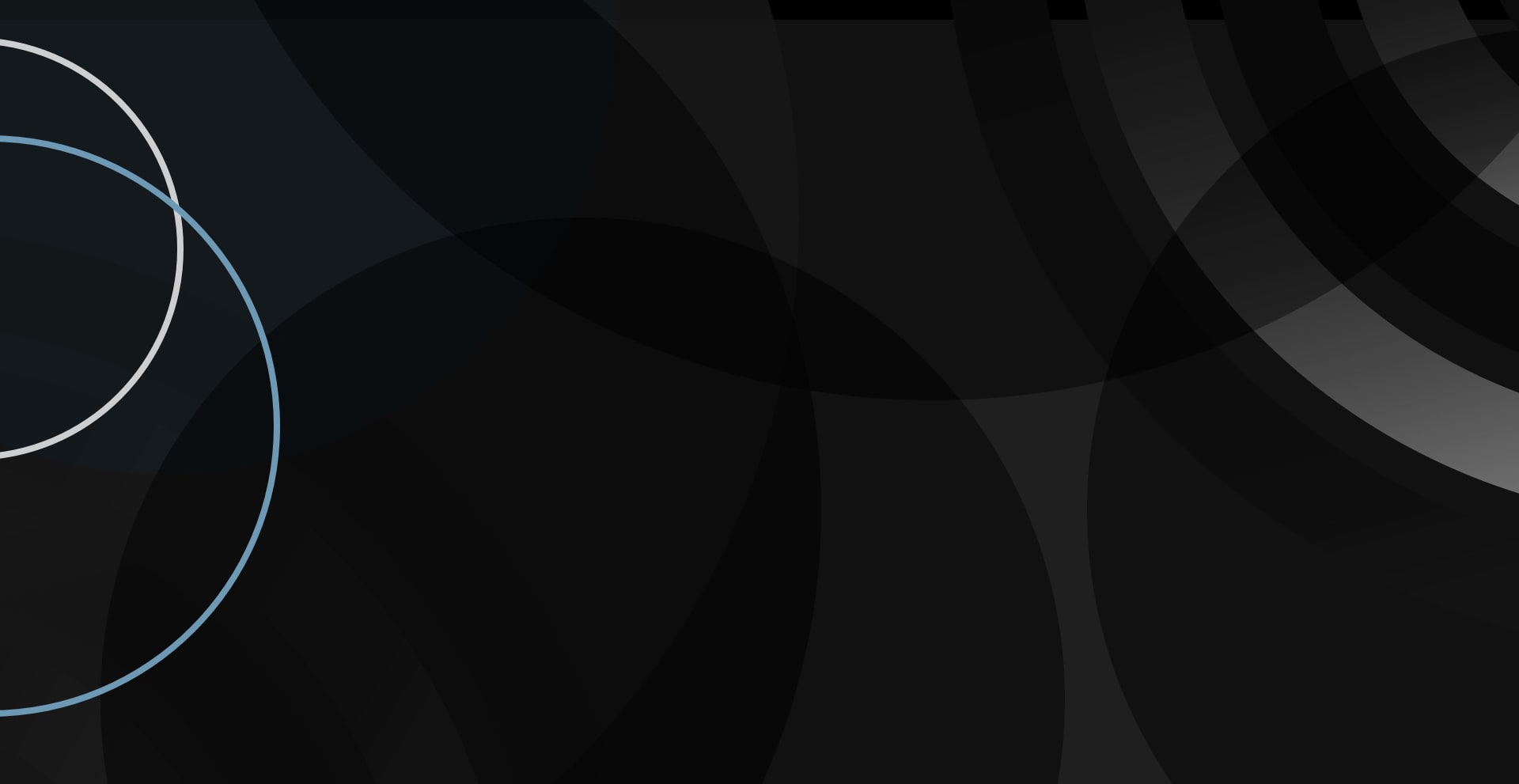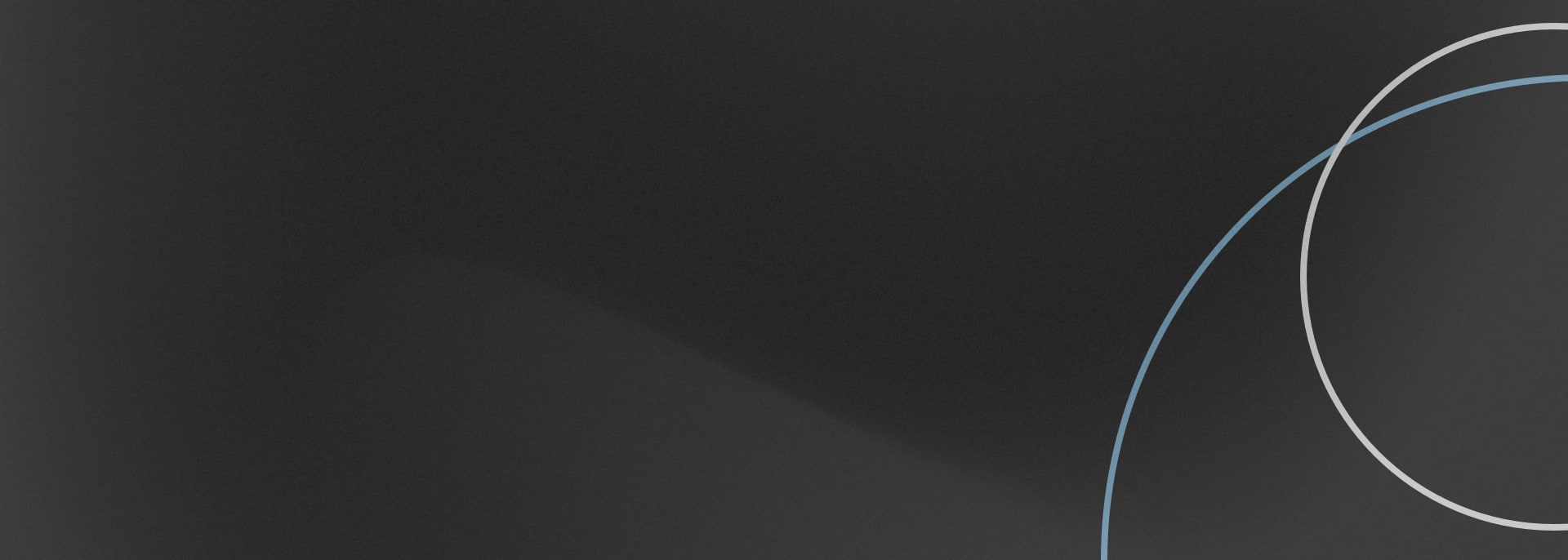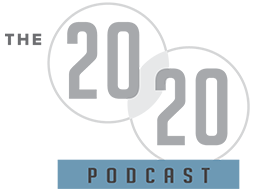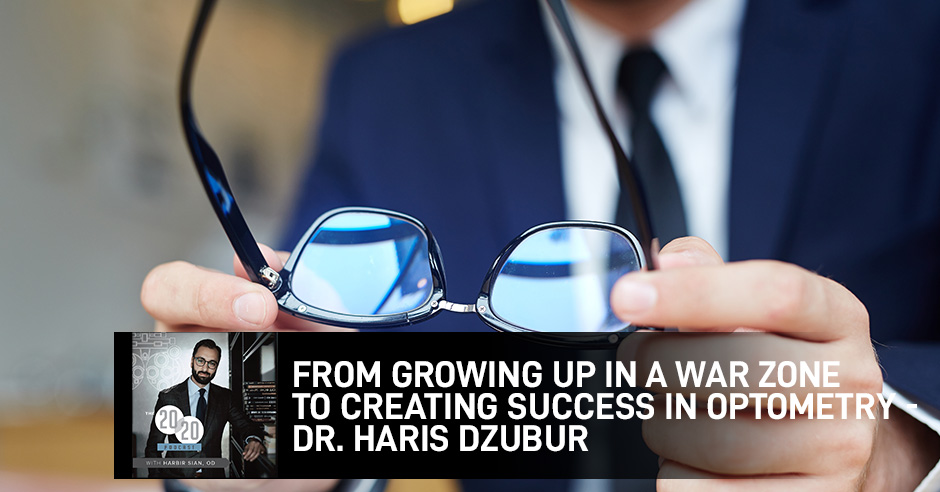
Dr. Haris Dzubur is a successful optometrist in the Chicago area who has had years of experience running a dry eye clinic within an ophthalmology practice and recently purchased a specialty practice of his own. In this episode, Dr. Dzubur shares his journey from narrowly escaping war-torn Bosnia as a child, growing up in Chicago, to eventually building his career in optometry. He also talks about how involving the community helped him in his business and provides his perspective as a clinic owner in implementing dry eye specialty in the practice. Let’s join Dr. Haris Dzubur in this episode and be inspired by his journey, from growing up in a warzone to creating success in optometry.
Connect with Dr. Dzubur:
Instagram: Instagram.com/melroseeyecare
LinkedIn: https://www.linkedin.com/in/dr-haris-dzubur-1a085a66
—
Watch the episode here
Listen to the podcast here
From Growing Up In A War Zone To Creating Success In Optometry – Dr. Haris Dzubur
Thank you as always for taking the time to read this show. I truly appreciate all the support. Every time you take time out of your busy schedule to join me here, it means a lot because I know there are a million things you could be doing. I have an amazing conversation lined up for you. You’re not going to regret taking that time out of your busy schedule to join us here. In this episode, I have an amazing guest, Dr. Haris Dzubur, joining me from Chicago.
Dr. Dzubur is a dry eye specialist enthusiast, all sorts of things in the dry eye space. He previously was the Director of Dry Eye and Optometry at an ophthalmology practice for nine years. He purchased his optometry practice and it’s coming up on his first anniversary in 2023 in his practice. Congratulations on that, Dr. Dzubur. He is also the Adjunct Faculty at the Chicago College of Optometry. We have a cool story that we’re going to be talking about, his story and journey. I’m excited to share this with you. Thanks for joining me, Dr. Dzubur. I appreciate having you here.
Thanks for having me. I tune in to your show all the time. It’s an honor to be here. Someone said that getting out of your pocket is getting like on Oprah.
Claudine said that. She is very kind and generous with her praise. I don’t know if I would consider myself anything related to or anywhere near Oprah but I’ll take the compliment. That’s very kind. Thank you. Haris, the best way to start this is for you to give us your bio. How do you introduce yourself or what things do you want to tell people about yourself? We’re going to rewind the clock to your childhood because there are some very interesting things that are worth sharing. Go ahead and give me your little snippet of a bio.
I graduated college in Chicago and took off to Texas to go to the University of the Incarnate Word for optometry school at Rosenberg School of Optometry. Dad graduated there in 2014. I picked up on some advice. What he did was cover the whole region with his resume so I did the same. I got a couple of calls from different ophthalmology offices and so on. I started working at an optometry at an OD office where they wanted a young medical guy. I said no to a couple of corporate options. I wanted to go straight medical. That was what made me excited about our profession. I did that for about eight months.
I got a call from another ophthalmology office that was much closer to home. I took a job with them. Shortly after getting into work with this ophthalmology office, the owner recognized me that I could be more than one of his 9:00 to 5:00-ers. He gave me my office and let me treat it as my own. I got to play owner at my satellite location, make all the decisions, and create protocols. That propelled me. When I got to school, I wanted to do contact lenses, especially lenses. I was very deliberate about my education and getting experience with that.
When I got out, all I saw in the beginning was nasty, bluff, dry eyes, and untreated stuff. I’m the type of personality who can’t leave things be if they’re not right so that led me down the rabbit hole of dry eyes and more specifically blepharitis and bone and gland dysfunction. That’s where I dug my heels in and started creating protocols for cleanings of lids and expressions, heat treatments, and things like that before all the fun technology came out. I still use some of that stuff.
I’m a small business owner and private practice owner. I bought an office from a medically-minded optometrist and have been there for a year. I still spend about a day at the ophthalmology office functioning as the director as much as I can. It’s been a fun journey. I’ve learned a ton. I’ve got to learn how to speak ophthalmology and optometry. I can merge two languages and talk in either room. I’m fortunate to have that kind of education. It’s like a Master’s program and ODMD business that I got to experience with my ophthalmology boss after I graduated and took that job. I’ve been fortunate throughout my career to be in good and important rooms and learn from the best.
Not a lot of ODs get to spend that much time in a room with ophthalmologists and speak with them at that level. That puts you in a different category for sure because it’s not the same. As much as we are both eye care professionals and we’re both trying to help take care of people’s eyeballs, it’s a different kind of conversation, I imagine.
The interesting and intriguing thing where it’s important for us to go to start because it’s going to lay the foundation for some of the other optometry types of conversations we’re going to have been where you grew up and when you grew up there. I want to help people visualize Bosnia in the late ‘80s and early ‘90s. What that was like? When did you come to the United States?
Let’s do a quick geographic history lesson. In the late ‘90s, Yugoslavia, which is comprised of all the Eastern European countries, started to break apart because their fearless leader, the communist, Tito died. As these different countries started taking their independence, wars broke out because the leading country that was serving at the time that led this conglomerate or these states wanted to hold onto power and everything.
When we broke open and decided to break apart or announce our independence shortly thereafter, a huge military campaign ensued similar to what happened in Ukraine, where a false flag operation, all this killing started, these paramilitaries rolled in from the North of the country, from Serbia, and started exterminating villages, killing people off.
We were in a town farther away, more civilized and organized. My dad’s plan, when this war erupted in 1992, was, “Let’s wait it out. I built a new house. I have two kids and a wife. I’m well-established in the community. We could probably let this little thing Peter over. It won’t turn into a big war.” Everyone’s optimistic at the time like, “It’s not going to turn into anything else. We’re neighbors.” They were wrong. These folks came in with the municipal lists of everyone and what they did.
In the first week, three of my uncles disappeared. One was the owner of the restaurant bar, a go-to place for the weekends in the town. He was the first one who disappeared in the first weekend. That week, two more of my uncles disappeared. We still don’t know where they are or where their whereabouts are. We just hope that with every mass grave uncovering more new graves every summer, we’re going to find their remains. My aunt’s widows can put that chapter to rest.
My dad got a job working at the local school, a volunteer job to stay out of public view because it was one of those things. Your name tagged you who you were. It was a funny thing. We have an event in the summer where we wear white armbands. We commemorate because the aggressors made us wear white armbands out in public and hang them out on our windows so they knew who the Bosnian Muslim houses were. It was similar to Nazi Germany. It was the second time that was ever done since that. We commemorate our fall and our dad with those one-arm bands in July every year.
My dad on the way home one day gets picked up by two military guys in a car saying, “You’re coming with us.” They knew who he was right away. He explained to them what he was doing at the school but they didn’t want to hear any of that stuff. They took him. I remember coming home and in the front yard, my aunts, my mom, my uncle, everyone was frantically trying to do something. They were trying to see my uncle off. My mom handed him a black duffel bag and he disappeared. He comes back in about an hour and a half with my dad. Everyone’s rejoicing and happy.
He was part of the civil defense. He called his friend who was a Serb who they went to high school with, one of their best friends. They went together to this bus station. The Serb guy got on and said, “That guy in the back, he’s got a job at the school, a worker job. He’s not done yet. Once he gets done with that job, then you guys are free to take him but he still has to stay.” That was the rule they gave these guys on the bus to get my dad off.
My dad got off and the next morning, we were already on our way to another bus in the middle of 4:00 AM. I remember it was cold and you could see the dew of the grass. It was a smoky and scary morning. We got on a bus and that bus ride felt endless. It was the only time that I’ve ever seen my dad cry. I remember waking up in the middle of the night on the bus. There were not enough seats so he was standing and holding onto the little rail thing on the bus. I see him shedding tears. I don’t know what to make of it. That was the first time I saw him ever cry. I’ve never seen him cry again. I’ve told him the story and he’ll take it but he doesn’t acknowledge anything.
From there, we went to our refugee camp surrounded by barbed wire and UN forces. We had fun memories of that camp. We played soccer in the mud. We had a friend who knew how to speak English so he would talk to the UN guys to give us soccer balls and share those dry crackers with the powdered milk. Those meals were a godsend. Those were so delicious and warm. You got to share them with these friends who you knew only for a couple of months. You never see these people again in your life but you create such like bonds.
We were sharing these things in between 2 bunk beds because 2 bunk beds were created like an apartment for your family. He would come over to my house, my bunk beds, and we would share. His bunk beds were closer to one of those plastic windows. We could see outside and see if the soccer game was going to pick up.
From there, we moved over to Croatia. We lived in a military school. They converted a military school into a refugee encampment or camp. We got there and I started going to school. I started going to second grade because I went to first grade in Bosnia. My memories from there were that my parents took my brother out for ice cream and I couldn’t go because I had to learn my multiplication tables. I’m walking around this camp crying, “1 times 1, 4 times 7,” and imagining them scarfing down delicious ice cream. That’s how I learned my multiplication tables fast because I did not want to miss ice cream again.
From there, we had a choice to go to Germany or come to the US. A lot of Bosnians had this choice and a lot had to go to Germany because they didn’t have any US family. We had an aunt who lived in the United States and was able to provide us with proper paperwork for us to come here. We got here in the summer of 1995. We were put in a Rogers Park area, which is not a great neighborhood.
It’s much gentrified over the last 30 years but when I moved there, there were a bunch of these other Bosnian families who also all moved to the same area. We traveled together because we didn’t want to get attacked by gang members. I remember walking down the street. If you saw guys across the street cross to your side, it was time to turn to run. That hardened us quickly. You’re a little happy-go-lucky kid. You run to war, see military guys outside your house with their checkpoints, get away from all that, and then get to ‘90s Chicago. I feel like you need that ‘90s music for the movies.
I’m already hearing that in my head.
Thinking back, I’m like, “I was here in the ‘90s as a kid walking the streets of Chicago.” We could walk where we wanted to. In Bosnia, we still kept that freedom about us. We were kids, 9, 10, 11, or 12 years old, walking around those Chicago streets in packs and together to protect ourselves. That’s how I grew up in Chicago. I love growing up in Chicago in the ‘90s. Thinking back, what a fun life.
It’s not unique. There are other people who’ve gone through this. It’s not one that we hear often. It’s important to remember and get that perspective on different upbringings and backgrounds. There are a couple of times that you said it again towards the end. What I pick up on there is the interesting thing is even though those are some difficult times, whether it was in Bosnia and that whole process or even when you came to the States in Chicago and you lived in this rough area, you still, as a kid, seem to have these fond memories and make the most of it, which are great. It’s cool that when you look back, you don’t just see the negative. You also see some positives in there.
It reminds me of a couple of times I’ve gone to travel to maybe more developing parts of the world where you would see people and you’d think they’re less fortunate based on what they have but you see them laughing and smiling and the kids playing. It gives you that perspective that they’re making the most of what they have and enjoying it. We often should try to do the same but we get caught up in all the stuff that we want.
Human life creates happiness. As a child, you go through war but all you have are these little fun anecdotes and little pockets of happiness. At least in my brain, I want to live in a happy state. There are so many reasons to be unhappy. You wake up, turn the news on, and want to grab your head. I try to compartmentalize my happiness and seek happy moments. That’s how it was even when days were dark. That keeps your brain healthier with different chemicals.
Try to compartmentalize your happiness and seek happy moments when days are dark. That keeps your brain healthier.
Let’s fast forward a bit. You already moved to the States. Let’s talk about going to optometry school. What was that process like for you? You went to the Rosenberg School of Optometry. How was that experience?
You and I are similar. We were not the best students. I was not a straight-A student. I need a GP above three. It gives me a good chance to get into these schools and also a chance to live life. I didn’t want to be a slave to stuff. I was more of a geek and I enjoyed the library. As I got further into college, sophomore year and junior year, I was geeked up to get done with school and get my workout in. I was like, “Today’s going to be 5 to 6 hours in the library. I’m going to go through all this stuff.”
I started walking in the library with my socks. I was thinking about it as, “Would I want to spend the next eight years doing this or having a 9:00 to 5:00 and starting work?” I was like, “No, I’ll delay work, live at the library, and meet other people who are in my situation.” You build friendships that way. I never looked at it as, “Four more years of studying.” I’m like, “Four more years, I’m going to learn so much.” Picking a good library was my whole thing. When I send my application in, you have to have another OD to write you a letter of recommendation.
Older ODs are not great at technology. We all know it. The OD, God bless her, who was supposed to submit my letter of recommendation didn’t submit it properly and then took off on a snorkeling adventure for three weeks. Twenty-something school deadlines dwindled. My parents were like, “Why don’t you spend another year working, stay local, apply to the local school, and go here?” I’m like, “I don’t want to spend another year. What am I going to do for a year?”
There were 3 to 4 schools left. The Texas school, San Antonio, Arizona, and then California. I went to Texas first and did an interview there on a Friday. On Monday morning, I got an email that I was accepted and I canceled all my other interviews. I was done. That’s good enough. I liked it. It looks brand new. They showed a picture of what the clinic would look like. I was like, “Good enough for me. It looks like nice. It was a small program. I love the intimacy of it and all that stuff. I decided to go there. It was a great choice. I have a lot of friends in Texas on the West Coast. That opened up that whole side of the country for me.
I graduated and came back to town. I started working for an optometry office. They brought me on as the young guy to do medical. It was about an hour’s drive each way. I did that hour drive turning down corporate because I wanted to be in medical right away. I don’t want to get jaded and get comfortable, and then make it harder for myself. I started working there. I worked there for about eight months. I got t-boned leaving work one day. In the hospital, I’m like, “Maybe I should look for something closer. Driving in these conditions and playing Russian roulette may not be the best idea.”
Once I came back from the hospital in a couple of months, I got contacted by an ophthalmology office that initially contacted me when I blanketed the region with resumes. They said, “Come back for an interview again.” Once I talked to them, the owner took to me, saw my energy, and said, “I had an office in Chicago. Why don’t I put you there and let you bill it for me?” It wasn’t managed properly when I got there, you could tell, because there were 4 to 6 patients a day and this place is 5 to 6 years old. It didn’t make sense.
You’ll be scheduled for 12 and you’re going to see 4 to 6. There was a no-show rate. There wasn’t a lot of buy-in from the people who were coming there. It was like a flailing office. In the beginning, I did everything. I was the manager. I was like, “Can you answer this question?” The front desk would ask me questions, the back and the middle. Everybody was asking me stuff. I’m like, “I’m going to use this opportunity to play pretend.” I’m a play pretend owner.
My boss, at the time, encouraged me like, “You should tell people you’re the owner there so they can get a sense that it’s a fresh office and management thing.” The reputation of the area, when you mention that office name, was like, “We sent things to you but we never got any reports or communication, nothing.” I was like, “We got a new management. I’m here. I’m the new face. We’re going to change all that.”
Fast forward, I got there in 2015 and left that office in 2022. I handed it off to my trainee. We almost tripled what that office was doing. That office has a regular 30-plus patients a day, 40, or sometimes more they can even handle physically. We’ve done a good job. It wasn’t just me. You put a team together and then let them work. I got lucky that we’re putting the right people in the right places.
From there, I was like, “I figured that out. I can go play for real money.” That was playing with house money. Now, I can play with my money. I told my dry eye reps and pharmaceutical reps, “I’m going to be trying to get my office by the end of my 35th year or I’m going to stay where I am.” My job was nice. I had no complaints. I love my job but it’s different when you’re the owner. Your word is going to happen versus like, “I got to check that.” I’ve never been great with authority. In my junior high school, three times, I got suspended for different incidents.
I was never good with people telling me what to do. You can ask me and work on me. I’m good at doing stuff that you want but authority wasn’t my thing. I told my reps, “I’m looking for an office. You know how I like to work. I’m a medical-based guy. If you come across someone who’s medically leaning, please bring him to my attention.”
Long story short, one of my reps says, “There’s this lady. She’s well put together. She has got a nice medical-based office.” He started having meetings with her and then we ended up making a deal. I’ve been here since October 26th, 2022. We’ll be doing a ribbon-cutting to celebrate our first anniversary with the local community in the city. That’s where I landed.
That’s awesome. Congratulations.
Thank you.
There is something that I wanted to bring up with you because I remember you said, “We had lunch in Vegas.” One of the points that you made was it’s important to be involved in the community. You’re doing the ribbon-cutting with the community. Tell me about why that’s been important, how that’s helped you, and how you do that to get involved in the community. What does that mean?
My operations manager is great at making small talk and shooting out emails. In our first month here, she would spend days missing. She said, “I went to this office, this library, this school, or the municipal building.” She chatted people up and got contacts. “Who can I email if our office wants to do something here or there?” Slowly, those little connections started paying dividends. She brought me into a room. She’s like, “I know this last minute but there’s a taste at Elmwood Park and we can have a booth. I have that answer and I need this much money.” I was like, “If it’s an opportunity, let’s do it.”
We did a taste with Elmwood Park. We were only Dr. Booth give away like the training on lip cleansing. We try to do things fun. A lot of people came to the booth. A lot of city people came to the booth saying, “You guys are in a doctor’s office. In our community, I need an eye exam.” That’s what got the ball rolling. In that event, we got to talk to the organizers like, “We have these other events coming down that you guys might like. We got wine, sip and stroll, or something like that. Christmas lights.” We’re working on an OD Santa outfit where I’ve got overalls and that’s it. We’re going to have to figure something out. We’re going to be unique at that event.
When you start showing, opening your arms, and open communications to the community, you start realizing that a lot of these communities are eager for that because a lot of their leadership is older-based. They want to be reached out to, talked to, and informed. I get patients told all the time, “We get so much information thrown at us.” He’s like, “We’re not young. We need things repeated and written. We need communication.”
I’ve seen a good rebound in investing in the community. We’re going to continue to do that. We’re just scratching the surface. I told my staff, “Once we’ve got our local community on our team, let’s move on to the next suburb. There are suburbs all around us where we see an opportunity that those people can use our services but also our brand, our way of working, or our friendship.” That’s been the key to our success. We’ll copy and paste that.
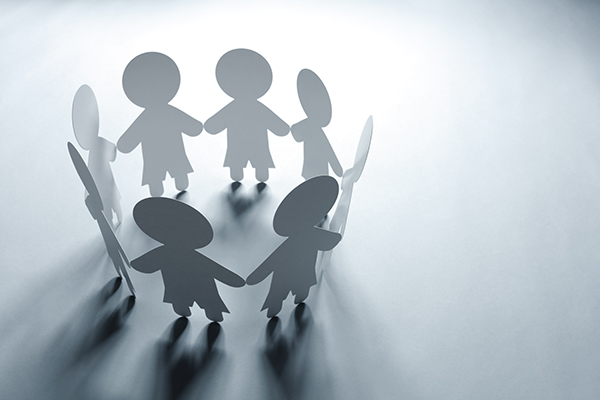
You do a lot of dry eye and I want to touch on myopia management. These topics are exhausting in a sense. I’ve talked a lot about them on my show or I’ve had guests talk a lot about them. You are an expert in the dry eye space but I’m thinking more from the perspective of the clinic owner and implementing these specialties is where I want to come at it. How would you go about if you’re starting brand new? How would you encourage somebody else to maybe implement dry eye into their practice and why? How has it been beneficial?
There’s been this whole rush to the dry space of technology rush. I remember hearing in 2013 a student saying, “Whenever something gets hot, the machines come forward first.” It’s almost like some Terminator. I was a student. You saw the IPLs, the arms getting fancier, and all these different ways to eat recess or heat the lid. I started with very low-tech. My ophthalmology office was not going to invest all these thousands of dollars for this OD guy to do some dry eye stuff. I had to make my protocols. I remember flipping through OX Magazine. I was like, “That tea tree, heat, express.” I organized it in certain steps so it gives the patient the best results.
I started doing that in 2015. As we called it, my bluff cleaning. That caught fire within the practice. Ophthalmologists and the OD started referring to me. At that point, I was like, “I don’t like this price. There’s a lot of work and I want to double the price.” Nothing happened. I doubled the price and it was busier. I’m like, “I’m going to do it again. It’s still not where I’m happy to do it.” We raised the prices again and there were no problems. We did more.
Making money with dry eyes is a dry topic. It’s hard to make money with dry eye if you’re not offering treatments. You have to be unique in how you are profitable in dry eyes. I try to treat dry eyes like I treat glaucoma. I see my patients every three months. It keeps them where they should be. I heard somebody on here saying, “This is what I recommend.” I don’t recommend it. I treat.
I don’t say, “You should do this and this.” I say, “Here’s my starting protocol. This is where we’re going to get you going for the next couple X number of weeks. We’re going to see you back. If this, then this. If not this, then this.” I’m giving expectations. If you get better, great. I’m going to encourage you to keep doing what you’re doing. If you don’t get better, we have other options. I don’t try to sell or rush people into anything. I want to build trust.
I’ve been a dry eye specialist for 9 to 10 years. I’m in the third layer of therapy. They’ll go to the regular one and do something in the middle. Google will find me. I find people spend a ton of money on dry eyes. Some of them would come to see me. It erodes trust. They were put up on all these things, pumps, jumps, and lumps. They’re still not feeling better because the time wasn’t taken to profile this dry-eye person or create a unique profile on what this person does, what their needs are, what their surface needs are, what their tiering is, what they currently have, or flip it.
Dry eye has this person. “Who does dry-eye have?” “It’s got a person that doesn’t do this and that. I would like to flip it on them.” I like to see them every three months because it keeps me successful. I can’t think of treating dry eye by telling somebody, “I’ll see you next year or in six months.” That’s so long. In Chicago, we’re so rampant with allergens and issues with our air. When I see people in six months, I feel like I did them a disservice like, “We’ve fallen behind here. We stopped doing this. We’ve fallen off this horse.” Regular follow-ups keep you more successful. Long-term are cases in whatever you do.
I started dry-eye on a shoestring budget. I still think I’m on a shoestring budget compared to other doctors. There are doctors who have been practicing dry eyes for a few years but they’ve got the big Ferraris of dry eyes, I like to call them. I’ll see those patients where those Ferraris fail. I had a patient from Wisconsin. He was put on all the different types of devices and everything. When all else fails, they were sent to me, not necessarily by their doctor but by another patient from Wisconsin who was very adamant about her coming to see me. I still send that doctor out a thank you letter for the indirect referral. I see the fun cases. The ones that come to me are cool.
That confirms again that the best type of marketing is always word of mouth. Ultimately, if you do a good enough job, people are going to walk around advertising for you. We have some of that equipment, the Ferrari or thereabouts. They’re good but you have to look at it from a holistic perspective. When I talk to other people who are experts that I trust in the space often, there’s no magic bullet.
Everything is like a piece of the puzzle. If there’s inflammation, then this type of treatment’s probably going to help with that. If there’s MGD, then this type of treatment’s probably going to help with that. If there’s a lack of tears and you’ve got to put an artificial tear on top, then that’s going to help with that. It’s all together. You can’t just say, “This one thing is going to fix the entire problem.”
Looking at it like that, the person and the holistic view are important. Diving in with one technology or another is not going to help. A bit of a mistake that some people are making is they’re getting sold this dream of what this machine might do for them. When you buy the machine, you have to spend all this time implementing it. You talked about your protocols and how important that is.
That algorithm of if this, then that is so important to develop. I didn’t know that before. We only started to learn that as we started to get more into dry eye. I can’t keep making stuff up on the fly. I need to know. If the patient responds like this, then we’re going to do this next. I learned that eventually. It’s important that you mention that. For anybody who’s still maybe earlier on in their dry eye journey, that may be one of the most important steps before any fancy equipment or anything like that.
Implement a simple procedure for dry eyes. It could be a heat or a zest cleaning. Get good at that implementation point and then take the next bigger more invested step. Consultants are making millions of dollars on teaching practices on how to use equipment they bought. I was talking to a local consultant. She’s like, “I’m going to go to California. We’re going to teach them how to utilize LipiFlow.” I’m like, “Clinically?” She’s like, “No, in the business sense.”
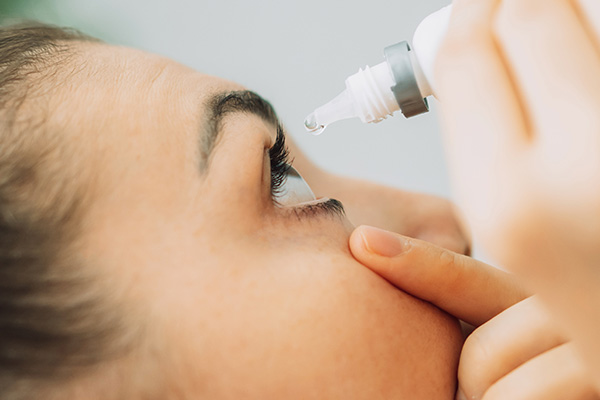
People are flying all over the country. You’re spending money to teach you how to operate or drive this Ferrari. Get good at something simple that doesn’t cost you a lot of out-of-pocket. If that takes off, let’s add this. You’ve got packages and what all the big dry-eye folks are doing. There is package 1, package 2, and package 3. That makes you as successful as the other ones financially and clinically. First, start simple.
All the big dry folks do is package one, two, three, and so on. That makes you as successful as other ones financially and clinically.
We all look at the big shiny thing and want it. It’s human nature. Not to say that it’s a mistake or that anybody’s wrong for thinking that but with human nature, we always want that bright and shiny thing. The companies know it too. They’re good at marketing. I look at some of these companies and I say, “It’s true you have this technology but you’re a marketing company first and then a technology company second. The way that you market this stuff is crazy.” They’re so good at it. It makes us want the thing.
They finished their little speech and you’re like, “Where? Let’s go.”
It’s like when you’re going through a timeshare presentation or something where you’re like, “Where do I sign up?” The other end of that specialty conversation was myopia. This is a conversation I’ve had a lot on my show. It’s an important topic. I try to approach it from the implementation standpoint. Everybody knows it’s important to do myopia management. There are lots of kids out there who are progressing. Have you started to implement that? What have you done, if you don’t mind sharing, successfully that’s helped you build that program in your practice?
I started a myopia control program at the ophthalmology office. It was the first ophthalmology office in town that offered myopia control. It’s something that you usually don’t go to ophthalmology for. I created different buckets, atropine, PALs, soft contacts, or ortho-k. Selfishly, I wanted to fit more Ortho-K. The way I was going to fit ortho-k was by doing myopia control. One led to the other. Like dry eyes, I get infatuated with stuff once I get into it. I want to eat it all up. That’s what happened with myopia.
We’re familiar with myopia and myopia control when we get out of school but we don’t learn a lot of that through rotations. We had nobody doing myopia control when I was going through rotations at least. That was my window of, “I could do more ortho-k if I do myopia control.” I’ve been to Vision by Design so I know how to start a program. I wanted to do it because I wanted to do it. We saw so much myopia. We were going to cycle through these kids and let them get worse, or we’re going to start offering something.
It was not very well accepted, championed, or pioneered by the MD side. They’re like, “Sure, if you want to do that.” One of our MDs comes to see me with her kid for myopia. She was here on Saturday. She’s my oculoplastic. I love her. She trusts me with her kid’s eyes. She believed first and she’s like, “I’ve got kids and I believe this stuff.” Slowly, the rest of everybody else came on board. The MDs are like, “Tell us more about what you guys do with this myopia stuff. Come see this connective tissue disorder patient that I see from uveitis. What do you think about them? They’re minus twelve.”
We got to do a lot of these unique cases with myopia control, ortho-k, and then my site. As the students rotated through, they were thinking they were going to get a lot of medical, which they do a ton but then also they got scleral lenses, ortho-k, and myopia control. It was like, “I went to ophthalmology and got all these primary OD things.” Once I moved from that ophthalmology office, I took all the things that I loved about our myopia program and copied them. Everything that didn’t, I left.
I heard Dr. Kaden speak and got a couple of ideas. He’s a genius. I jumped on his podcast. I heard his podcast. I’m listening to him speak about stuff and giving more ideas. It’s like colleagues. “What are you doing? I should do this, not this? I’ll try that.” I then created my myopia, MJ23 Program, to be confused with Michael Jordan 23. I don’t know why I did that. I wanted to specifically launch it in 2023 instead of ’22 because then I could use MJ23. My myopia kids get an MJ23 shirt, Myopia Journey 23. We’ll launch it in ’23.
That’s the program I have here. Every month, we grow. In the beginning, you grow by month. Hopefully, I want to grow by the week and then by the day. That’s where my focus is. This community does not have that. The community surrounding this community does not have that. We need quite a few myopia control docs out there. If we’re going to take on all these cases, they’re coming. That’s the next frontier. The doctors that I hire hopefully in the future will have that as one of their focuses.
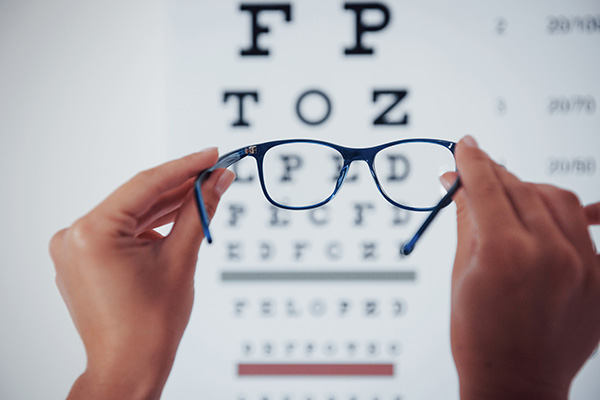
When you mentioned growth, what type of metrics would you be using or looking at, even if it’s maybe not too specific but in general would help you see that you’re growing? Is it the number of kids that you’re seeing come through the practice? How many are signing up for myopia management? What else would you do?
Myopia control consultations. We do a consult. I separate it from any exam because it’s not something I’m going to talk about along the way of an exam. I bring it back to the consult and we dwell into the calculator and simulator. We get into all that. We then talk about our options and discuss kids’ level activity, what they would like to see, what they would like to do, and what their prescription allows us to do. From there, I send parents in-patient home with a folder of everything we discussed and they have someone to follow up with. It’s not me. It’s a coordinator they’ll touch base with.
Usually, I’ll get a green light from that person like, “Mom and Dad elected ABC.” It then propels me into what I need to do. I do my consult. They exit my staff and then from there, I get a green light or a yellow light if they’re going to initiate therapy. If not, then we recommend an accurate pair of glasses. I’d say, “If you do nothing, you’re going to do accurate pair glasses, limit near work to this many minutes, and then spend more time outdoors. We’ll send you home with these three things that you can do, just not do anything else with us.”
We then give them 6 month’s RX check. I might shorten that to four months. We’ll say, “Mom and Dad, they’re up $0.50 from last year and myopia is an average 50 to 75 per year. Do you want to keep watching this? It’s up to you.” That’s how I will convert long-term. I’ve only been here for a year so I’ve got to two more cycles. Even the patients that were encountering local, you talk about myopia and its progression and how it functions with the disease. They’re like, “What? I’ve been coming to this practice for X number of years. I’ve never heard that.” I’m like, “We’re at different generations of doctors. Things you’ve heard many years ago are probably no longer valuable now.”
It’s a relatively new topic for a lot of patients and parents. “How come nobody told me about this before?” They’re a bit skeptical sometimes but you have to remind them that there are always new things coming up and we’re trying to be on top of it and lead this as far as making sure we’re giving our patients the best or newest option, whatever’s going to help them. Usually, you’ve given them enough information to come around. That’s good to hear about how you set it up and you have that separate consultation and all of that. You follow up with them. That’s an important thing.
We’re working on that too. Just because we don’t have a good protocol, I tend to still do a lot of that consult within the actual eye exam. I do have patients come back for a bit more of a workup with cyclol and all that kind of stuff but I’m still having trouble separating the routine exam from the actual myopia conversation. I tend to have most of it in that exam anyway and get the buy-in from the parents. We’re like, “We’re going to start this process by doing the cyclol and all of this stuff.” I know a lot of colleagues who are bigger into it. They’ll stop at, “Your child is myopic. We need to do a consultation and come back.” That seems to work well.
I feel like you’re too efficient. You’re too good. Become less good. We can’t cover it all at once. I’ve got things to pull up on this computer. I created an AI talking video about myopia and I called her Bella. I played Bella for the first three minutes and Bella talked about what I typed. I use chatbots to create a whole myopia speech. I put on my YouTube video of Bella speaking about myopia. While she’s speaking, my assistant is setting everything up, all the calculators and all that kind of stuff. Usually, we’ll do a cyclol refraction on that day again.
When they finished speaking or listening to Bella, I came in and then we got into the options. I don’t make that appointment cheap. I want to see how serious you are. You’re going to pay me for my consultation fee. What we do is sometimes roll that consultation fee into a global fee. If you end up going with the program, it’s a free consultation if you think about it. If you take time and decide to wait or do something else, I still want to be reimbursed for that time slot. That’s the way I do it. I learned from older guys who did it well. I was like, “I see why that makes sense.”
If you roll it into the global fee, then it ends up being a free consultation. There’s one of the other things I wanted to ask you about. You do have students coming through your practice. You’re Adjunct Faculty at the Chicago College of Optometry. I wanted to ask you a little bit of advice that you could give. Let’s do a couple of pieces of advice for current students and then maybe a couple for new grads because they’re in slightly different parts of their careers.
I will start with current students. I have very similar advice to what Emilia Bridge said, “Be deliberate.” If you know you want to do something, take that type of rotation. I had a student who was like, “I’m so dreading my next rotation. It’s like in some type of VT clinic.” I was like, “You’re going to do VT when you get out?” He’s like, “No, but it was in this area and it’s nice and sunny. It’s in a sunny climate.” I was like, “Get ready for a waste of three months. Study for your boards and make use of that time because you’re going to have a three-month break essentially. Learn during that three-month break.” When he said what he wanted to do, there was nothing to do with that.
I tell him, “Be deliberate because these windows that you get to spend with these professionals, some are going to teach you things that other people are not going to want to teach you.” Others teach them about business and the business side of eye care. They don’t get there anywhere. I said, “The more you ask me, the more I’ll share. I’m going to be out there and open up. I will tell you things that other ODs might not. You might want to keep it close to their vest. I’m here to teach you so I’ll open up or you can ask me those questions.”
With the current ones, I would say, “Be deliberate and plan now.” I was getting my NPI. For us, we have a DA and NPI number. Our NPI number is how we identify a provider, Provider Identification Number. I did that. I had that number done way before I graduated. That number helps you get onto panels and move faster through that process when you get into a clinic.
If I’m hiring you and you tell me you already have your NPI, I already feel better about you because I know I can get my credentialing department to get you on all these insurances faster than the other person who hasn’t even thought about their NPI yet until I told them. I was like, “Get your NPI. Put down your school address or home address, and then later you can swap it.” I tell them some of these things that they can get out of the way while they’re waiting and ready to go.
It’s tough with the new grads because there’s so much student debt and styles of work are changing. People want to work four days. A lot of our graduating colleagues are female. We’re becoming rarer. It used to be a boy’s club. Now, it’s becoming a girl’s club. The boys are saying hello. For those folks, those are going to be doctors that I would love to hire.
I’m going to love to have a couple of moms working because they’re going to want to do three days a week and that’ll keep them super happy. I’ll be wanting to do something like that as well for an employee. It makes my life easier and their schedule easier. That’s the wave of the future. It’s 3 or 4 work days. I’m still one of the old-school guys. I’m still working six days but I’m a business owner. I get excited working six days a week.
You give me one week of beach time and I’ll work for you all year. I don’t need any time off. For them, I would say, “Figure out what you want to do, how you want to live, and what lifestyle you want to have, and then plan your career accordingly.” There are a lot of doctors who go into practice on the false premise of becoming a partner. That’s so many stories.
Figure out what you want to do, how you want to live, and what lifestyle you want to have. Then, plan your career accordingly.
I sat with my buddy from Texas. We were roommates. He started working for OD with the carrot of partnership or partial ownership. I’m sitting with him. He came to town for the Bears game. We’re sitting at a coffee shop, “How’s everything going over there?” “They sold to VC.” I’m an employee again. I’m working with the other employees on getting our thing and getting out of this employment feeling.
I’ve heard that story a couple of times, that type of story for sure. That’s tricky. It’s unfortunate when someone dangles that carrot. Understand the situation and try to figure it out. Know where you want to end up. Do you want to be an owner or do you want the flexibility of being an associate OD thing? That makes a big difference. Ownership is not always what you picture it to be either. You might end up being an owner. The funny thing is people think that somehow that gives you more flexibility and you don’t have to work as much. It does some days but most of the time, it doesn’t.
Ownership is stressful.
It’s the other way around usually. Before I wrap up, there are a couple of questions I like to ask everybody at the end. Before I do that, how can people get in touch with you if people want to learn more about you, talk to you, or connect with you?
If they want to see the goofy side of me, they could check on my TikTok. They’ll see skits. I like to do skits with my students or without my students. I like to keep it fresh and happy. It lets my creative juices flow. I did skits back in high school so I’m always coming with funny skits. Sometimes they’re going to anger some ODs with some certain stuff so they’re like, “You can’t do skits about that. You’ll be making fun of this OD that has this thing.” They get struck down. My parents thought I was going to be a lawyer or actor. I don’t think they picked a doctor. I love doing that.
In optometry, you could still use those skills.
That’s what I love about the profession.
What’s your TikTok?
My TikTok is @MelroseEyecare. My practice won’t be called Melrose forever but for now, it’s called Melrose Eyecare. That’s my TikTok and Instagram. My dry eye-specific Instagram is @OkoDryEye, like an Eastern European word for eye. That’s our Instagram. We got skits on both.
Here are the last couple of questions I ask every guest. The first one is, if we could hop in a time machine and go back to a point in your life where you were struggling, you’re welcome to share that specific moment and what you’re going through if you’re open to that. If not, the main thing is what advice would you give to your younger self at that time?
I wouldn’t even call my upbringing or through the trauma we went through struggling. For me, it was a struggle for my parents. When I see what my parents went through, nothing is a struggle. We’re working minimum-wage jobs. My dad used to go and move carpets off a truck for $20 on a Sunday for 5 to 6 hours. That $20 was a lot of money back in 1996. I’ve seen my parents struggle to give me my brother the next step up in society.
I’ve seen people struggle. I don’t struggle. I don’t see my life as a struggle. I see life as a bunch of fun times and mistakes you make and you learn by making mistakes. I have no problems with my students making mistakes. It’s only going to teach them and make them better for the next one. You usually don’t make a mistake when you make it once.

Even when they asked me, “Doctor, this patient has a narrow angle,” I was like, “Dilate them. Go for it. Close them in my office. I challenge you to close that angle. I’d rather be closed here than her close in 2 to 3 weeks so close her. We’ll fix it if you close her.” Maybe it’s not the best way to teach students about those angles but I tell them why I think of it. I go back and look at the angle. I was like, “This may look narrower to you but there’s going to be much more narrow angles you’re going to see. This is nothing.”
There are always times in your life when you’re having a tough time. In my first anatomy test at school, I bombed that thing. I did an all-nighter. The anatomy test was so out of left field. I bombed it. I was like, “This could be it. What am I going to do about the rest of this?” That was a lot of stress. Anatomy is like learning a new language. My genius took comparative animal anatomy in college because I wanted to do something different instead of human anatomy. I got tossed into human anatomy. It was a rough first semester for me for sure in a time of school.
Funny enough, anatomy was my strong suit. I loved anatomy. I don’t know why. Memorizing different features of the body was something that came easily to me, even neuroanatomy.
Neuro is my thing. I love neuro. I color-coded all my notes. I would draw this nerve blue, purple, or yellow. I had all these color codes. When we sat on the neuro test, I was like, “They’re talking about the yellow one that hits the blue and goes up here.” I walked out of the first neuro test and I’m all cheesy. I was like, “That was so much fun.” I looked down and there were girls crying.
After neuroanatomy, a lot of people were crying. The last question I like to ask is, everything that you’ve achieved to this point in your career, how much of it would you say is due to luck, and how much is due to hard work?
We create luck with hard work. People that work hard put themselves in a place to be lucky. This comes even from football. Listen to coaches talk about NFL coaches. Luck is created. You build yourself up to luck. I tell my kid when he practices soccer, “The more you train, the luckier you get, and the more likely you’re going to be in the right place to score that goal.” Luck doesn’t happen by sitting and standing around in the middle of the field waiting for the ball to come to you. You’ve got to work to be in the opportunity to become lucky.

I consider all those places, all the rooms that I’ve been in, and people that I’ve met like yourself and many colleagues that we spoke to in Vegas. I’m lucky to be in that room for sure. I’ve done a lot of stuff. I feel like I’m paying my dues back by teaching the new generation, making little carbon copies of myself, and sending them out into the world.
All that luck has come with many years of work. You know it. You talked about what this show takes. When we’re done, what does it all entail? The editing is the hardest part of any video. Any TikTok I put up, I’m editing that thing for a week. People put it up already. I was like, “Hold on. I have to put one more little animation at the end. There’s one thing missing.”
One thing I’ve found myself saying is a lot of times people are like, “It’s nice that you were in the right place at the right time.” I was like, “Trust me, I’ve been in a lot of the wrong places before I ended up in the right place. It didn’t happen by chance this time.” It’s because I was trying to be knocking on a bunch of different doors. In this particular scenario, after all of those attempts, I was in the right place at the right time but it takes all of that work to get there. That makes sense.
I like that, “The harder you work, the luckier you get.” That puts both things into perspective. You need them both but you can’t have one without the other, or at least to be successful, you can’t. I appreciate this. This is a long time in the works here but I’m glad I finally got you on and got to hear your story and share your story. I hope people who read this get some inspiration and perspective from it. Are there any final words you want to share before we wrap up?
I love what you do. Don’t stop. Keep doing what you do. I love exciting, fun, and conversational shows. You bring that to our community. That was missing. I knew you randomly off of Instagram. I would share your things and then you would say, “Thanks for sharing.” I was like, “Yeah, for sure.” I love helping people. You’re so grateful for everything. I’m not a big thank you type of person. I don’t need those things. I want to celebrate people that I find interesting and that are doing good things for our profession.
Lori Wemhoff was the President of AOA in 2011. She visited our school and she said something. I always repeat this. She said, “Leave your profession better than you found it.” I try to do that through my students and my education of the public. You’re doing an amazing job and I employ you to continue. Don’t stop.
Leave your profession better than you found it.
Thank you very much. I appreciate. That’s very kind of you. Thank you for your support. It means a lot. I hope we get to connect more and do that exact thing. Let’s all continue to try to leave the profession better than we found it. That’s a great mantra to have.
I look forward to us growing gray and old together. You found your community and that’s going to be the community where you’re going to have all those young photos and then ten years later, it’s like, “Look at him. Look at that hair.”
Thank you very much. I appreciate the time. Thank you, everybody, who’s reading. I will see you in the next episode.
Important Links
- Dr. Haris Dzubur – LinkedIn
- @MelroseEyecare – TikTok
- @MelroseEyecare – Instagram
- @OkoDryEye – Instagram
